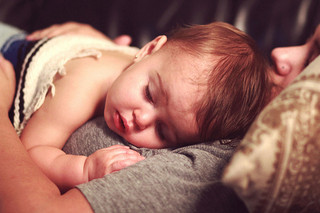 It’s hard to interpret a child’s illness when they don’t have the vocabulary to express exactly what’s going on with them. Even when kids do have the right words parents know there’s sometimes a reason to doubt their honesty. That tummy ache on the day of the big math test does seem suspicious. But when it comes to chronic migraine your child’s complaints should be taken seriously. The New York Times reports that 10 percent of younger children and more than 25 percent of older kids do suffer from migraines.
It’s hard to interpret a child’s illness when they don’t have the vocabulary to express exactly what’s going on with them. Even when kids do have the right words parents know there’s sometimes a reason to doubt their honesty. That tummy ache on the day of the big math test does seem suspicious. But when it comes to chronic migraine your child’s complaints should be taken seriously. The New York Times reports that 10 percent of younger children and more than 25 percent of older kids do suffer from migraines.
The age of onset for migraines is typically earlier in boys and starts around age seven; however, as children reach the age of puberty a greater number of girls complain of migraine pain. This may be due to the link between estrogen production and migraine.
Not only may parents dismiss a child’s migraine complaints, but doctors often do as well. There are only 20 centers in the U.S. that specialize in pediatric migraines, leaving kids and their worried parents in the hands of caring but sometimes inexperienced physicians. But chronic migraine pain is as real for children as it is for adults and the need for migraine relief is real.
Reasons for migraines in children vary but include:
-
Poor nutrition
-
Inadequate water intake
-
Food sensitivities
-
Changes in schedule (such as at the beginning or end of the school year)
-
Genetic predisposition
-
Hormonal changes related to puberty
Symptoms of Pediatric Migraine
One of the reasons chronic migraines go undiagnosed in children is because the symptoms are often different than those adults experience. Children 5- to 10- years old may present symptoms that adults sufferers aren’t familiar with. They may also include typical symptoms such as light and sound sensitivity, headache pain and nausea/vomiting.
These 10 signs may indicate your child is having a migraine attack:
-
Abdominal cramps
-
Extreme sleepiness
-
Paleness
-
Unusual thirst
-
Excessive sweating
-
Dark circles under the eyes
-
Tearing eyes or unexplained crying
-
Diarrhea
-
Increased urination
-
Chronic sinus headaches
Because many physicians are uninformed about pediatric migraines, finding migraine relief for your child can be frustrating. As with adults, it often takes a combination of treatments to provide lasting relief. Untreated chronic migraine pain can lead to poor academic performance, lack of social interaction, lowered self esteem and depression. Medical evaluation for pediatric migraines may include a complete physical exam, a CT or MRI scan and nutritional evaluation. You may be asked to keep a migraine diary for your child that documents all the food and drink consumed before the migraine attack, activities that preceded the attack, medication, bedtime and waking routines and, if applicable, the child’s menstrual cycle.The doctor will use the diary to search for migraine triggers. Avoiding known triggers are an important part of any long term treatment plan.
If your child’s pediatrician doesn’t follow up with an adequate treatment plan don’t hesitate to seek out the advice of a migraine specialist even if he or she does not specialize in pediatric migraines.
For immediate relief at home, apply a cold compress on the forehead, give the child prescribed medicine or non-aspirin OTC pain relievers, such as Tylenol or Advil, administer light massage to the feet, let your child lie in a dark, cool room and practice relaxed breathing. Allowing your child to sleep may be the best migraine relief. Seek immediate emergency attention if you can’t wake your child or if she has slurred speech, appears confused, has trouble walking or experiences weakness in her limbs.These may be signs of an urgent neurological crisis that requires immediate medical attention.
Many adult migraine sufferers are all too aware that pediatric migraines are real because they’ve been coping with attacks their whole lives. But some people think of migraines as an adult problem and don’t consider their child’s complaints to be symptomatic of migraines. Knowing that the symptoms of pediatric migraines can be very different than the symptoms of an adult will help make you a better advocate for your child’s healthcare. If your child has been diagnosed with migraines or if you suspect they’re suffering from chronic migraine problems tell us about their process of diagnosis and which treatments are giving them relief.
Image Credit: kourtlynlott

